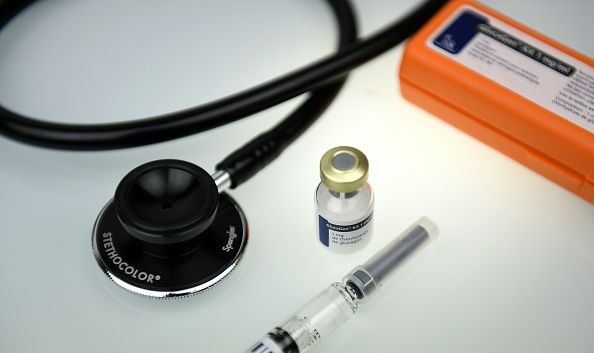Diabetes Treatment: Scientists Find A Healthy Diet To Reduce Insulin Use

People with diabetes may no longer have to depend on insulin to control their blood sugar levels. Scientists have found a healthy way to reduce the use of this drug in people with high blood sugar levels.
The researchers from the Hebrew University of Jerusalem found that a three-meal diet with carbohydrate-rich breakfast can reduce insulin use in people with type 2 diabetes. According to the research team, the diet plan is so effective that a significant reduction in insulin use will be visible in three months.
A three-meal diet, in contrast to an isocaloric six-meal diet, can lead to weight loss, a significant reduction in hemoglobin A1c (HbA1c), appetite and overall glycemia. This will, in turn, decrease the daily insulin use among people with high blood sugar, the researchers said.
For the study, the researchers observed 28 diabetes patients with obesity or overweight. The participants were then divided into two groups. While the first group was assigned a balanced three-meal diet, the second group was randomly asked to follow a six-meal diet for 12 weeks.
At the beginning of the study, researchers assessed body weight, glycemic control, appetite, continuous glucose monitoring and clock gene expression of each of the participants. They were assessed again at the second and 12th week of the study.
During the final analysis, the study team found that a balanced three-meal diet was more effective than a six-meal diet in significant weight loss and decreased HbA1c. They concluded the research by stating that "upregulation of clock genes seen in this diet intervention could contribute to the improved glucose metabolism."
The study was conducted in collaboration with the researchers from Wolfson Medical Center in central Israel.
Nearly 463 million adults are currently living with diabetes globally. Of these, around 80 million people need insulin to control their blood sugar levels, but many of them can't afford it due to its substantial shortages or skyrocketing prices.
To address this issue, the World Health Organisation (WHO) launched a plan on Wednesday that encouraged pharmaceutical companies to come forward for producing insulin.
"The simple fact is, that the prevalence of diabetes is growing, the amount of insulin available to treat diabetes is too low, the prices are too high, so we need to do something," Emer Cooke, the WHO's head of regulation of medicines and health technologies, said. "We’re confident that competition will bring prices down. That way, countries will have a greater choice of products that are more affordable."
© Copyright IBTimes 2024. All rights reserved.





















